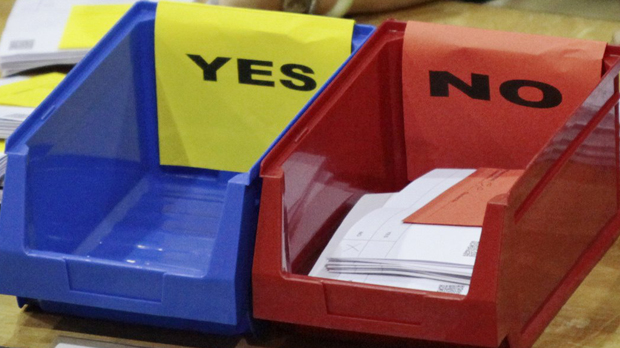AV vote and elections ‘among most remarkable in history’
The Teflon Tories, the SNP surge, Clegg’s kicking and lacklustre Labour: politics Professor Bill Jones writes for Channel 4 News on the “remarkable” outcome of the AV referendum and elections.

The elections of Thursday 5 May will go down as among the most remarkable in UK political history.
Firstly there was the astonishing SNP surge which delivered a majority to Alex Salmond.
Secondly was the awful kicking for Nick Clegg and his party: hundreds of seats lost and several councils.
Third was the amazing Teflon Tory Party which did not suffer any major wounds from any effects of the local elections. In addition they won two councils and gained 48 councillors.
David Cameron should acquire the soubriquet “SuperCam” just as Macmillan was called at the end of the 1950s.
Fourth was the lacklustre results for Labour. They lost Scotland, one of their fortress areas and failed to get the majority in Wales. Moreover, they failed to break out of the areas of traditional strength. Ed Miliband has much to think about.
And finally there was the huge majority for the No campaign, casting reform of voting into the long grass for the near future. A truly amazing disappointment given the fact the Yes campaign was leading up to January this year.
Read more: Vince Cable says Tories are ruthless, calculating and tribal
What next?
And what of the future? I suspect the coalition might splinter if the Lib Dems implode as they well might with activists opting for Huhne or Hughes instead of he unfortunate Clegg.
Cameron now seems as dominant as any Prime Minister since Thatcher. Clegg might well have to go, a casualty of the bizarre circumstances of May last year.
Read more: Clegg wishes he could get back to the garden
But voting reform will not disappear. In 1951 97 per cent of voters plumped for the big parties; in 2010 it was 65 per cent and the number of smaller parties was close to 85.
No, coalitions, despite what the NO campaigners said about FPTP, is very much part of what they will produce in the future.




